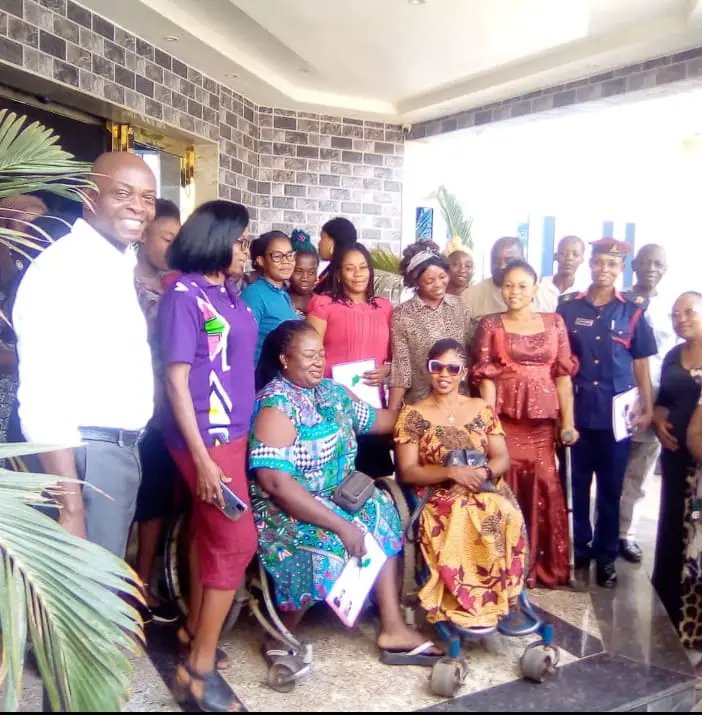[ad_1]
From Chijioke Agwu, Abakaliki
The Women’s Rights And Health Project (WRAHP) has trained over 600 women and girls with disabilities (WGDs) in Ebonyi State on modalities of handling the issues of sexual and gender based violence prevalent in the society.
Ebonyi State Coordinator of the WRAHP, Charles Iroh, disclosed this during a consultative meeting with the stakeholders on amplifying the voices of the WGDs against SGBV which held at Blossom Height Unique Hotel in Abakaliki.
According to Iroh, the intents of the meeting were to share with stakeholders in the state the experiences of a one-year project implementation on amplifying the voices of women and girls with Disabilities against SGBV.
He explained that WRAHP in its one-year project implementation in Ebonyi engaged 18 key influencers of public opinion and stakeholders in the State via advocacy meetings to support the rights of women and girls with Disabilities cutting across every field of human endeavour.
He said: “40 women and girls with Disabilities in Ebonyi State are empowered with knowledge and skills to be effective advocates in addressing issues of sexual and gender-based violence affecting their peers in private, public and political spheres.
“549 women and girls with disabilities were sensitized by the trained advocates through peer-to-peer physical sessions to be aware of and exercise their rights against SGBV and all forms of rights violations.
“4 survivors were provided psychosocial counselling support services. An arrest of one perpetrator was carried out.
6 media houses engaged in coverage that demonstrates an accurate and holistic understanding of sexual and gender-based violence affecting women and girls with Disabilities from a human rights perspective.”
He noted that the WRAHP also had partnered with different media organisations to facilitate its programs, saying over 2500 copies of policy briefs on protecting WGDs against SGBV has been produced and distributed in the state.
“2,500 copies of the simplified edition of the Ebonyi State Violence against Persons Prohibition(VAPP) Law,” and 3000 copies of fact sheet on violence against WGDs” were also distributed.
This in his words was to further engage more populations to advocate on issues of SGBV affecting women and girls with disabilities.
The WRAHP therefore, recommended domestication of the National Disability Act by Ebonyi State, and the establishment of the Persons with Disabilities Commission with designated desk officers to champion issues of SGBV affecting women and girls with disabilities.
Also recommended by the WRAHP were “Livelihood empowerment for women and girls with disabilities survivors of SGBV to promote financial independence and scholarship programs for their children.
“A sustained comprehensive sexuality education program that addresses holistically the sexual and reproductive health needs of women and girls with Disabilities. Such a program will also aim to empower them with knowledge and skills to be aware of and exercise their rights to bodily integrity and autonomy.
“Inclusion of persons with disabilities in the Ebonyi State SGBV response strategies and coordinating mechanism.
Programming on SGBV for women and girls with disabilities should be inclusive involving all clusters, given instances of the hearing impaired, vision impaired, physically challenged, dwarf among others.
“Working with clusters of women and girls with disabilities should be highly promoted as this helps to strengthen their group coherence, solidarity, associative strength and capacity to work together to address a common health and development issue that affects them.”
[ad_2]
Source link



